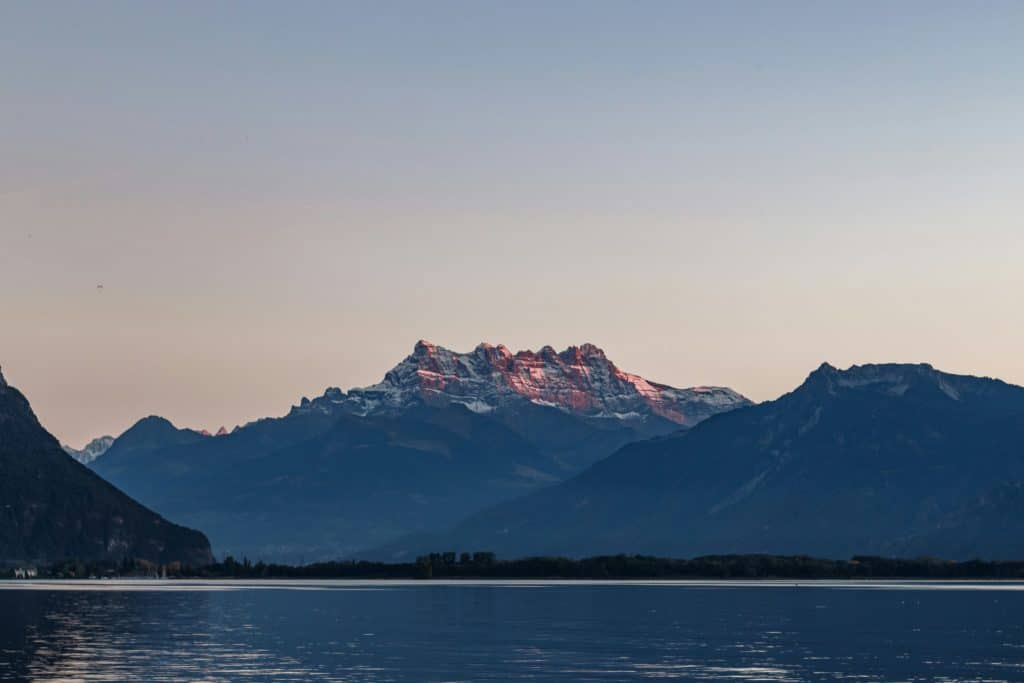Plankton: this is the 𝗯𝗮𝘀𝗲 𝗮𝗹𝗶𝗺𝗲𝗻𝘁𝗮𝗶𝗿𝗲 of any body of water. Without phytoplankton, we would have neither 𝘇𝗼𝗼𝗽𝗹𝗮𝗻𝗰𝘁𝗼𝗻, nor small 𝗽𝗼𝗶𝘀𝗼𝗻𝘀, nor large 𝗽𝗿𝗲́𝗱𝗮𝘁𝗲𝘂𝗿𝘀 in the ocean; underwater and sub-lake life would be extinct. This is the principle of 𝗰𝗵𝗮𝗶̂𝗻𝗲 𝗮𝗹𝗶𝗺𝗲𝗻𝘁𝗮𝗶𝗿𝗲 ; if zooplankton can no longer feed on phytoplankton, they disappear, and small fish find themselves without zooplankton and decline in turn, which in turn causes the large predators to disappear. Carnage!
But what are these microscopic organisms, without which we would have no life underwater? Just one example: 𝗹𝗲𝘀 𝗮𝗹𝗴𝘂𝗲𝘀! According to a 2003 CIPEL study, there are 𝟭𝟰𝟬 𝘁𝗮𝘅𝗼𝗻𝘀 (families) of phytoplankton in 𝗱𝗮𝗻𝘀 𝗹𝗲 𝗟𝗲́𝗺𝗮𝗻 alone! Despite their small size, phytoplankton make up the 𝗺𝗮𝗷𝗼𝗿𝗶𝘁𝗲́ of the 𝗯𝗶𝗼𝗺𝗮𝘀𝘀𝗲 𝘃𝗲́𝗴𝗲́𝘁𝗮𝗹𝗲 in virtually any body of water.
Phytoplankton live in the 𝗲𝗮𝘂𝘅 𝗽𝗲𝘂 𝗽𝗿𝗼𝗳𝗼𝗻𝗱𝗲𝘀 of the lake. Since they are photosynthetic organisms - which use the sun's energy to feed themselves - they must be found in the zone known as '𝗲𝘂𝗽𝗵𝗼𝘁𝗶𝗾𝘂𝗲', i.e. the zone in which light still penetrates (between 10 and 15m deep). Often unicellular, phytoplankton float freely in the euphotic zone. Many species can form 𝗰𝗼𝗹𝗼𝗻𝗶𝗲𝘀, making them 𝘃𝗶𝘀𝗶𝗯𝗹𝗲𝘀 𝗮̀ 𝗹'œ𝗶𝗹 𝗻𝘂.
Phytoplankton numbers 𝗳𝗹𝘂𝗰𝘁𝘂𝗮𝘁𝗶𝗼𝗻𝘀 𝘀𝗮𝗶𝘀𝗼𝗻𝗻𝗶𝗲̀𝗿𝗲𝘀 are impressive; one litre of water can contain 𝟯𝟬 𝗮̀ 𝟱𝟬 𝗳𝗼𝗶𝘀 𝗽𝗹𝘂𝘀 more plankton in 𝗳𝗶𝗻 𝗱𝗲 𝗽𝗿𝗶𝗻𝘁𝗲𝗺𝗽𝘀 than during the winter! Every year in May, the phytoplankton population collapses, due to its overconsumption by zooplankton. The zooplankton population in turn collapses when it has eaten all the available phytoplankton. Finally, a 𝗲́𝗾𝘂𝗶𝗹𝗶𝗯𝗿𝗲 is found between the phyto and zooplankton in Lake Geneva.
Phytoplankton also has another role; it is the second 𝗽𝗼𝘂𝗺𝗼𝗻 𝗱𝗲 𝗹𝗮 𝗽𝗹𝗮𝗻𝗲̀𝘁𝗲. We hear a lot about the Amazon, but phytoplankton produces 𝟱𝟬% 𝗱𝗲 𝗹'𝗼𝘅𝘆𝗴𝗲̀𝗻𝗲 which we breathe, whereas 𝗔𝗺𝗮𝘇𝗼𝗻𝗶𝗲 𝗲𝗻 𝗽𝗿𝗼𝗱𝘂𝗶𝘁 𝗲𝗻𝘃𝗶𝗿𝗼𝗻 𝟮𝟴%. Sylvia Earl, a great oceanographer and explorer, has calculated that just one species of plankton, Prochlorococcus, provides the oxygen for one in five breaths for every human being on Earth!
Although tiny, phytoplankton is perhaps the living organism on which the most responsibility rests. 𝗟𝗲 𝗽𝗹𝗮𝗻𝗰𝘁𝗼𝗻, 𝗰'𝗲𝘀𝘁 𝗹𝗮 𝘃𝗶𝗲. Enough to study, cherish and protect!
Information from the CIPEL and National Geographic
Photo credit: Patrice Simon, Arielle Cordonier


